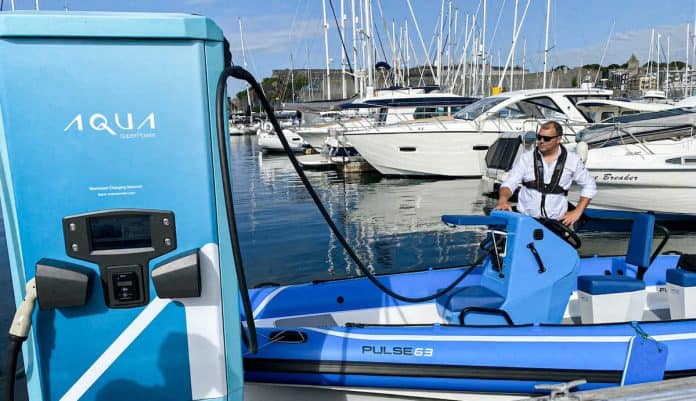Drive solutions company RAD Propulsion has won an Innovative UK grant on a study to develop the world’s first vessel-to-grid project.
The company will work alongside partners Aqua superPower, RS Electric Boats and international partners in Canada on the CanUK vessel-to-grid (V2G) project.
The study will focus on harnessing battery power stored in electric boats for grid stability and efficiency.
The project will focus on the use of bi-directional charging technology, enabling energy to be passed to and from an e-vessel battery, utilising the batteries aboard to open up opportunities for the carbon reduction of fleets, ports and harbours, a reduction in e-vessel operating costs, grid flexibility services and an acceleration of e-vessel uptake.
Bi-directional charging installations are planned for Plymouth, UK and Halifax, Canada.
The installations will have V2G capabilities across software and hardware shoreside and on aboard the vessels.
Contrasting environmental and operational conditions
“Dual locations will provide contrasting environmental and operational conditions, showing bi-directional movement of energy to and from the vessel battery and its ability to perform key energy services offering increased energy security,” explained a spokesperson from RAD Propulsion.
“The technology innovation of V2G requires the adoption of key communication protocols to enable interoperability between vessels, chargers, grid and software management systems.”
CanUK will adopt and adapt bi-directional technology used in the automotive sector to operate in the marine environment.
Lab testing of equipment and batteries is set to enhance an understanding of operational and environmental parameters of marine batteries.
“With no specific regulation for marine V2G currently in place best practice will be collaboratively produced in conjunction with key regulators,” added the spokesperson.
“The balance of the cross-border consortium will enable co-development of a V2G ecosystem with support on the integration of V2G standards, battery R&D and energy market integration.”
The project is supported by the University of Plymouth. The Canadian partners are led by marine V2G software company Rimot, marine technology and marine market organisation COVE, Lennox Island First Nation (skills training) and Dalhousie University that will provide knowledge of battery energy systems.




